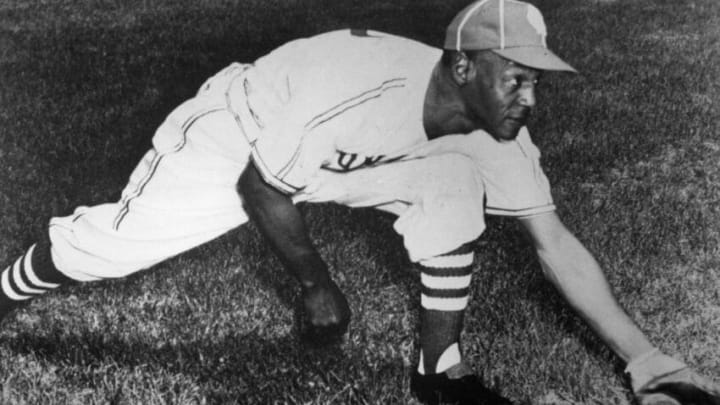Buck O’Neil, who spent most of his life as a tireless advocate for the Negro Leagues, will finally be inducted in the Baseball Hall of Fame as part of the Class of 2022.
More than seven decades have passed since John “Buck” O’Neil last played a game in organized baseball. Nearly 60 years have passed since he coached in the Majors. He died 15 years ago after spending his entire 94 years devoted to the game of baseball.
O’Neil wasn’t the best baseball player. At a time when the door to the Majors was denied to men of his skin color, what counts as official Negro League statistics assign him a .258 average and nine home runs. O’Neil himself insisted that, in the haphazard way such statistics were kept, he was actually a .300 hitter.
But, if the Negro Leagues are mentioned today, Buck’s smiling face is likely the first image that comes to mind. He was the consummate storyteller, recalling days when he played with Satchel Paige and against Josh Gibson. For most of his life, nobody listened.
That changed in the early 1990s when filmmaker Ken Burns included O’Neil in his seminal documentary on the national pastime. Suddenly a new generation had access to a bygone era, and it was all thanks to O’Neil.
Those contributions to the game were finally recognized on Sunday when, after years of being kept out, O’Neil was voted into the Baseball Hall of Fame by the Early Baseball Era Committee.
Buck O’Neil’s contributions to the Negro Leagues are finally recognized
O’Neil, who died in 2006, won’t be in Cooperstown next summer to give his acceptance speech. But we already know what he would say, because he spent a lifetime saying it. He would recall his childhood spent working the celery fields in Florida. How an African-American youth was denied entry into his local high school. How his Kansas City Monarchs, who he led to four straight Negro American League pennants while playing the finest first base in the league, could beat the New York Yankees.
O’Neil was a founding member of the Negro Leagues Baseball Museum in Kansas City and was a consultant to the Baseball Hall of Fame. In 2006, 17 former Negro Leaguers were elected into Cooperstown. O’Neil wasn’t one of them. Was he bitter? No. He stood there at the podium and gave the speech on behalf of the men (and one woman, Effa Manley), who were mostly forgotten if not for O’Neil sharing their stories.
“That’s the way the cookie crumbles,” O’Neil told Kansas City sportswriter Joe Posnanski, who wrote a book, The Soul of Baseball: A Road Trip Through Buck O’Neil’s America. “I’m still Buck. Look at me. I’ve lived a good life. I’m still living a good life. Nothing has changed for me.”
O’Neil mentored Elston Howard and Ernie Banks on their way to the big leagues and the stardom that was denied to him. He was the first African-American to serve on a Major League coaching staff when he joined the Chicago Cubs in 1962. He was still scouting well into his 90s. In 2020, Major League Baseball announced the Negro Leagues would now be awarded the same stature given the American and National Leagues. O’Neil wasn’t alone in the effort, but all the years he spent keeping the memories of those men alive certainly played a part.
He’ll be joined in Cooperstown by five other players announced on Sunday: Gil Hodges, Jim Kaat, Tony Oliva, fellow Negro Leaguer Minnie Minoso, and Bud Fowler, considered the first black professional.
The plague gallery already includes Satchel, and Gibson, and Cool Papa Bell, and Turkey Stearnes. O’Neil had a story to tell about all of them. Now, at last, his own story can be told in the sanctuary of the game.
Somewhere, he has a big smile.
